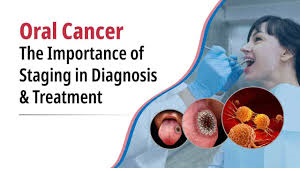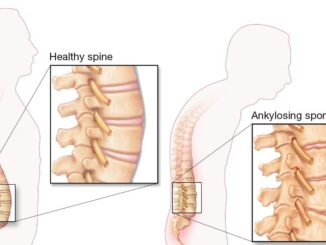
Holistic Treatment of Oral Cancer: Comprehensive Support for Healing and Wellness
Oral cancer, which affects the mouth, throat, or surrounding areas, is often treated with surgery, radiation, and chemotherapy. While these treatments are crucial, they can also come with challenging side effects like pain, dry mouth, and fatigue. For many, adding holistic treatments can help manage these symptoms, support immune health, and improve quality of life. Holistic care approaches oral cancer treatment by supporting physical, emotional, and mental health, emphasizing natural methods that complement conventional therapies. Here’s how holistic treatment can be beneficial for individuals with oral cancer.
Understanding Holistic Treatment
Holistic treatment involves a whole-person approach to healing, focusing on balancing the mind, body, and spirit. Rather than solely targeting the cancer cells, holistic therapies aim to enhance overall wellness and boost the body’s natural resilience. In the context of oral cancer, holistic treatments may include dietary changes, herbal remedies, mind-body practices, and lifestyle adjustments to support the immune system, alleviate side effects, and aid emotional recovery.
Key Holistic Approaches for Oral Cancer
Nutrition and Diet
A nutrient-rich diet is essential for those undergoing oral cancer treatment, as it helps strengthen the body’s immune response and supports tissue repair. Anti-inflammatory foods, such as leafy greens, berries, nuts, and seeds, provide antioxidants that combat oxidative stress, which can worsen inflammation and cancer progression. Soft, nutrient-dense foods, like smoothies, soups, and pureed vegetables, are ideal for oral cancer patients experiencing mouth sores or difficulty swallowing.
Incorporating foods high in zinc and vitamin C, like citrus fruits, bell peppers, and spinach, may promote tissue healing and immune function. Additionally, avoiding sugar and processed foods helps prevent inflammation and supports overall health during recovery.
Herbal and Natural Remedies
Certain herbs and supplements may offer relief from symptoms and support the immune system. Turmeric (curcumin), for example, is a well-known anti-inflammatory and antioxidant that may help reduce cancer-related inflammation. Aloe vera can soothe mouth sores and reduce dryness, while green tea extract provides polyphenols that help protect cells from damage.
Other herbs, such as ashwagandha and ginger, can help boost immunity and reduce nausea from chemotherapy. As with all supplements, it’s crucial to consult a healthcare provider to ensure these remedies are safe to use alongside conventional treatments.
Mind-Body Practices for Stress and Emotional Support
The stress and anxiety that come with an oral cancer diagnosis can impact the body’s ability to heal. Mind-body practices, including meditation, mindfulness, and breathing exercises, are effective tools for managing stress. These practices help improve mental clarity, reduce anxiety, and enhance relaxation, creating a supportive mental environment for healing.
Yoga and tai chi, which combine gentle movement with mindfulness, can alleviate stress, increase circulation, and support physical flexibility. Regular practice of these mind-body techniques can significantly enhance emotional resilience and create a sense of calm amid the challenges of cancer treatment.
Acupuncture for Symptom Relief
Acupuncture is a traditional Chinese medicine practice that involves inserting fine needles at specific points on the body. For oral cancer patients, acupuncture can help alleviate side effects such as nausea, dry mouth, and pain. By promoting natural energy flow, acupuncture may help restore balance within the body and improve overall well-being.
Detoxification and Hydration
Since the liver and kidneys work to eliminate toxins, especially during cancer treatment, maintaining proper hydration and gentle detoxification can support these organs. Drinking adequate water, herbal teas, and including fiber-rich foods helps facilitate toxin removal. Simple detox practices, like warm lemon water or dandelion tea, can support liver health without straining the body.
Avoiding alcohol, caffeine, and smoking is especially important for those with oral cancer, as these substances are taxing on the liver and can worsen inflammation.
Emotional and Social Support
Cancer affects not only the body but also mental and emotional health. Finding emotional support through counseling, support groups, or talking with loved ones can reduce stress and improve coping abilities. Many people with oral cancer benefit from joining cancer support groups where they can share their experiences, fears, and triumphs with others facing similar challenges.
Practices like journaling, creative arts therapy, and spiritual exploration can also provide an emotional outlet and bring a sense of peace. Emotional health is crucial in holistic healing, helping individuals stay positive and resilient during treatment.
Conclusion
Holistic treatment for oral cancer offers a comprehensive approach that enhances conventional medical care. Through balanced nutrition, herbal remedies, mind-body practices, acupuncture, gentle detoxification, and emotional support, holistic therapies can reduce symptoms, boost immunity, and improve quality of life. Integrating these practices alongside standard treatments provides a fuller, more supportive experience for those facing oral cancer. Patients should always consult their healthcare team before starting new therapies, ensuring a safe, coordinated approach to healing. Embracing holistic care empowers individuals on their journey to wellness, fostering resilience and hope.




Be the first to comment